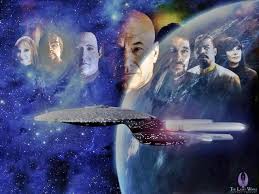I’m a little late in writing my blog for this week because I drove up to Albuquerque to visit my sister-in-law for several days. It was my sister-in-law who, at a Matrix Energetics seminar in 2010 in Albuquerque, created the opportunity for a double of myself from a parallel universe to appear beside me. What I saw was a somewhat hazy human figure from the waist down pressing itself against my right hip. It wasn’t until I collapsed to the floor (a familiar effect of uncollapsing wave function) that she verified that what she had seen was another me who was smiling. Now, according to Hugh Everett III, the source of the Many Worlds Theory in 1957, no contact between parallel worlds should be possible. I guess my experience shot down that proviso (at least for my sister-in-law and me). The experience led to the cure of some prostate cancer I had been entertaining as a physical reality. You see, my double appeared in order to merge his form with mine and project his version of me into my holographic reality where he (as me) had never developed prostate cancer. That’s some razzle-dazzle, but it nonetheless had all the sensory experience of a “real” event. I have been cancer-free ever since. Go figure.
Some years ago, I came to the realization (despite my lurking skepticism) that everything we take as reality is just made up. Richard Bartlett taught me that, but it took a while for me to confront the actual truth of it. The implication of that perception is that, within a completely fictional reality, we are free to make up whatever version of it we choose–and we do, every day of our lives. What determines the kind of reality we experience is how it “feels”. Consider that our consciousness, through the creation of thoughts, ideas, and perceptions, sets up a particular kind of experience of reality that is uniquely ours. No two are completely alike, no matter how much agreement we can generate on the details of a consensus reality. Our consciousness collapses waves of infinite possibilities into very real-looking, specific things and events. That’s a default setting. Beyond that, any idea, thought, or perception that is based upon fear, anger, or guilt constructs a narrative that supports the initiating emotion. That’s called “projection”.
It’s as though we are sitting up in a projection booth at a movie theater and running a movie of our lives, which is projected onto a big screen for general viewing. Of course, we don’t realize that we are only projecting the movie and not actually living it, so we get very much involved with the plot and the characters we are shown and never have a clue that we are just watching a movie. Whatever is happening on the screen affects our feelings so that the narrative can be frightening, consoling, touching, exciting, uplifting, depressing, or joyous by turns. Most of us call that “life”.
But there is another way to look at life. This view is supported by both Advaita Vedanta and Quantum Mechanics so that if you have to have a certain context for what you are willing to believe, be it spiritual or scientific, you can be accommodated. Sri Nisargadatta Maharaj, an Advaita Vedanta authority, both in theory and practice, says:
“If you wait for an event to take place, for the coming of reality, you will wait forever, for reality neither comes nor goes. It is to be perceived, not expected. It is not to be prepared for and anticipated. But the very longing and search for reality is the movement, operation, action of reality. All you can do is grasp the central point, that reality is not an event and does not happen and whatever happens, whatever comes and goes, is not reality. See the event as event only, the transient as transient, experience as mere experience and you have done all you can.”
Now that’s going to feel a lot different from watching the usual movies that have dominated your attention all your life. See, you wait for the movie to start and there is plot development, character development, foreshadowing, and all the rest that creates more expectation, more suspense, more anticipation of the next scene and the next and the next. But, to quote quantum physicist Michio Kaku, “Nothing physical happens” because, to quote quantum physicist John A. Wheeler, “There is no ‘out there’ out there” to begin with. You’re watching a movie!
Play around with it. Try on feelings for size. You can be amused at a horror film and horrified by a romance story. The reality is yours to feel. Above all, find out how being you feels. That’s really what all the stories are about.



